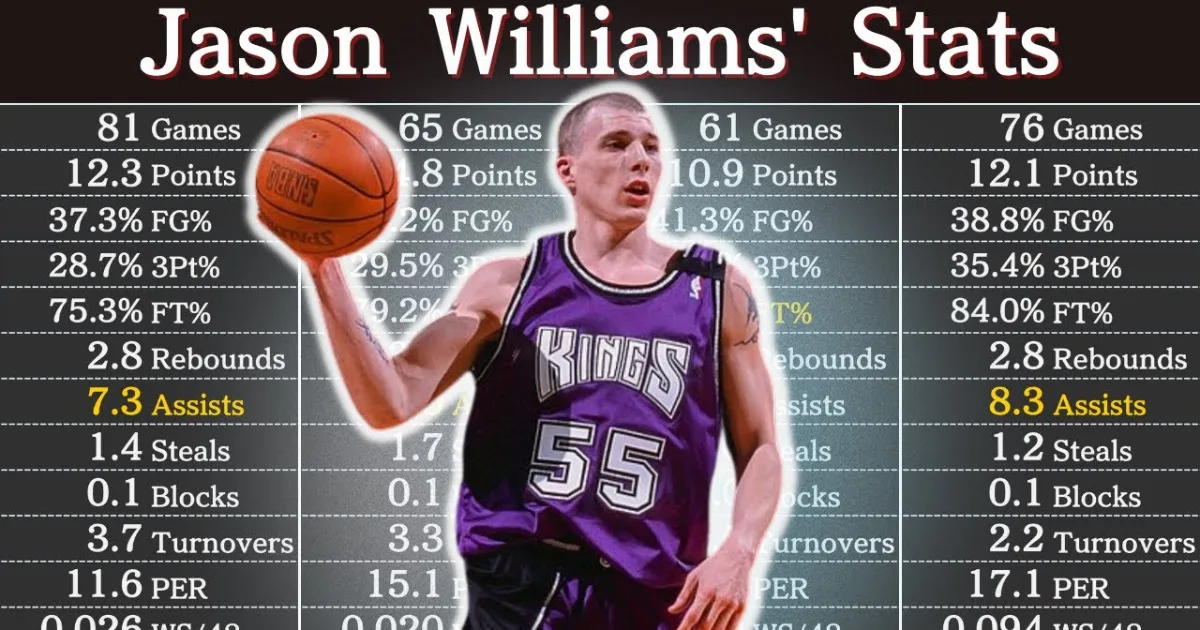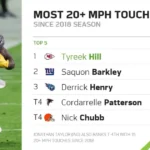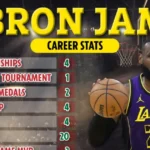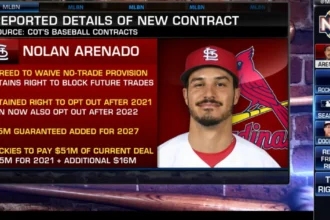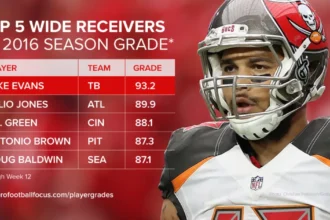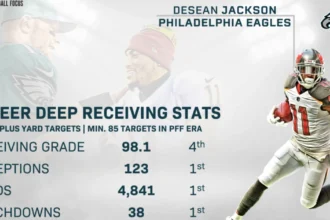Hey there, basketball fans! If you’ve ever watched a point guard weave through defenders like they’re standing still, dishing no-look passes that leave you gasping, or pulling off behind-the-back magic that turns a simple fast break into highlight-reel poetry, then you know the kind of player Jason Williams was. Born on November 18, 1975, in Belle, West Virginia, Jason Williams Career Stats—better known as “White Chocolate”—brought a streetball flair to the NBA that made him one of the most entertaining guards of his era. From his explosive debut with the Sacramento Kings to hoisting the Larry O’Brien Trophy with the Miami Heat in 2006, Williams’ career was a rollercoaster of highs, lows, and unforgettable moments.
This article dives deep into Jason Williams’ career stats, breaking them down in a way that’s easy to follow—no matter if you’re a kid just discovering hoops or a grandparent reminiscing about the ’90s. We’ll chat about his journey like we’re courtside buddies, sharing stories of his flashy plays and gritty comebacks. And at the heart of it all? A full table of his season-by-season numbers, so you can see exactly how “White Chocolate” sweetened the stat sheet over 12 NBA seasons. Grab a snack, settle in, and let’s tip off!
From Small-Town Roots to NBA Stardom: Jason’s Early Days
Picture this: A lanky kid from a tiny town in West Virginia, dreaming big while shooting hoops on cracked pavement. Jason grew up in Belle, where he starred at DuPont High School, leading the Panthers to a state championship run in 1994. His high school coach once said Jason had “hands like velvet”—quick, soft, and always finding the open man. That talent caught the eye of college scouts, landing him at the University of Florida.
At Florida, Jason blossomed into a pass-first wizard. As a sophomore in 1997, he averaged 7.4 assists per game, earning All-SEC honors and showing flashes of the creativity that would define his pro career. But it was his junior year that sealed the deal: 14.4 points, 6.6 assists, and those jaw-dropping dimes that made Gators fans chant his name. The Sacramento Kings couldn’t wait—they snagged him with the 7th overall pick in the 1998 NBA Draft. At just 22, Jason was about to inject some West Virginia swagger into the league.
What made Jason stand out right away? It wasn’t just the stats; it was the style. We’re talking alley-oops from half-court, passes between the legs while spinning backward, and a fearlessness that turned every possession into a potential viral clip (before viral clips were even a thing). Fans loved it, but critics grumbled about turnovers and defense. Still, those early numbers whispered promise: In his rookie season (1998-99), Jason dropped 6.4 points and 7.9 assists per game, earning a spot on the All-Rookie First Team. He was the spark the Kings needed to ignite their run-and-gun offense.
The Sacramento Kings Era: Building a Dynasty of Fun (1998-2001)
Ah, the Kings’ late ’90s squad—Vlade Divac in the post, Peja Stojaković bombing threes, and Jason orchestrating it all like a maestro with a basketball instead of a baton. From 1998 to 2001, Jason was the heartbeat of Sacramento’s high-octane attack. His career stats from this stretch show a young gun finding his groove: averaging around 8-10 points and 6-8 assists, with a field goal percentage hovering near 40%. But the eye test? Pure fireworks.
Take the 1999-2000 season: Jason suited up for 65 games, tallying 7.8 points, 2.5 rebounds, and a league-leading 6.0 assists in just 25 minutes per night. He wasn’t a scorer first, but when he struck? Boom. His best game that year was a 21-point, 15-assist explosion against the Lakers, proving he could hang with the big boys. The Kings went 44-38 that season, making the playoffs for the first time in 20 years, and Jason’s playmaking was the X-factor.
By 2000-01, things heated up. Jason averaged a cool 10.1 points and 6.8 assists, shooting 41.3% from the field and even knocking down 31.3% of his threes. His assist-to-turnover ratio improved, showing maturity amid the chaos. Off the court, though, life got tricky—a 2001 car accident sidelined him briefly, and whispers of off-court issues started swirling. The Kings traded him to the Vancouver Grizzlies mid-season, a move that stung fans but opened a new chapter. In Sacramento, Jason played 245 games, laying the foundation for what became one of the NBA’s most beloved teams. His stats there? A testament to potential: 8.4 points, 6.7 assists, and enough highlight passes to fill a mixtape.
Grizzlies Grind: Tough Times and Triple-Double Teases (2001-2003)
Landing in Vancouver (soon to be Memphis) felt like a demotion for Jason, but he turned it into a proving ground. The Grizzlies were a young, scrappy bunch in a expansion-era rut, winning just 23 games in 2000-01. Jason arrived with something to prove, and boy, did he deliver. His 2001-02 stats exploded: 12.0 points, 2.7 rebounds, and a Grizzly-record 8.7 assists per game over 58 appearances. That assist average ranked third in the league, and his 1.8 steals showed defensive growth.
The crown jewel? November 30, 2001, against the Houston Rockets. Jason torched them for a career-high 38 points and 11 assists in a 102-85 blowout. It was a statement: “White Chocolate” wasn’t melting under pressure. The Grizzlies improved to 37 wins that year, thanks in part to Jason’s wizardry. But injuries nagged—a fractured right foot cost him 24 games—and the team bowed out in the first round.
Season two in Memphis (2002-03) was bittersweet. Jason posted 10.9 points and 7.4 assists in 60 games, but a knee injury and more off-court drama (including a suspension for violating the league’s anti-drug policy) derailed momentum. Under new coach Hubie Brown, the team gelled, but Jason’s turnovers crept up. Still, in 118 Grizzlies games, he averaged 11.5 points and 8.1 assists—a point guard’s dream line. Vancouver/Memphis fans adored his flair, even if the wins were scarce. These years toughened Jason, turning raw talent into seasoned savvy.
Magic Moments in Orlando: A Steady Hand (2003-2004)
After a three-team trade in June 2003, Jason joined the Orlando Magic, pairing with Tracy McGrady for a brief, electric duo. The 2003-04 season was his Orlando swan song: 81 games of reliable production, averaging 10.2 points, 2.6 rebounds, and 6.7 assists. His 41.0% field goal and 34.7% three-point shooting fit Grant Hill and T-Mac’s iso-heavy style perfectly.
Jason’s Magic tenure peaked in assists—he dished 8.2 dimes in one stretch—but turnovers remained his Achilles’ heel (3.7 per game). A memorable night: 22 points and 12 assists versus the Pistons. Orlando won 41 games, but the playoffs exposed cracks, losing in five to Detroit. In 81 games, Jason’s stats screamed versatility: Not the flashiest year, but a steady 10-7 line that kept the offense humming. It was a bridge season, prepping him for his defining run.
The Pinnacle: Miami Heat Glory and Beyond (2004-2007)
Then came Miami. Signed as a free agent in 2004, Jason slotted in as backup to Gary Payton, but fate intervened. By 2005-06, he was the starting point guard for Dwyane Wade and Shaquille O’Neal’s Heat. His stats that championship year? 12.3 points, 2.5 rebounds, and 5.3 assists in 58 games, with a career-best 85.2% free-throw clip. But numbers don’t capture the magic: Jason’s passes set up Shaq’s dunks and Wade’s drives, fueling a 52-win juggernaut.
Playoffs? Epic. Jason averaged 5.5 points and 3.6 assists in 21 games, but his poise in the Finals—clutch threes and no-look feeds—helped Miami rally from 0-2 down against Dallas for the title. Game 6: A dagger three that sealed the sweep. At 30, Jason had his ring. The Heat honored him as one of their top 25 players ever in 2007.
The 2006-07 encore was solid—8.2 points, 4.6 assists in 62 games—but knee issues and age slowed the flash. Traded to Memphis again in 2008, Jason returned to the Grizzlies for a nostalgic lap: 3.4 points and 2.7 assists in 10 games before ACL tears forced retirement in 2009.
Comeback Kid: Grizzlies Redux and Final Fade (2009-2011)
Undeterred, Jason rehabbed and signed with the Grizzlies in 2009-10, backing up Mike Conley. In 22 games, he mustered 3.7 points and 2.0 assists—humble pie, but heartfelt. Released in March 2010, he caught on with Orlando for 2010-11: A final 13 games, 2.0 points, 1.3 assists. On April 18, 2011, Jason hung up his sneakers for good at 35. His last bucket? A fitting assist on a dunk.
Post-retirement, Jason dabbled in 3×3 leagues like BIG3 in 2017 (before a knee tweak), coached youth ball, and even popped up in pro-ams, still threading needles at 40. Today, he’s a basketball ambassador, his legacy etched in YouTube compilations.
Jason Williams Career Stats: The Numbers That Tell the Story
Now, let’s get to the meat—the stats! Jason played 788 regular-season games across four teams, averaging 10.5 points, 2.3 rebounds, 5.9 assists, 1.1 steals, and 0.2 blocks per game. His shooting? 39.8% from the field, 32.7% from three (on 2.5 attempts), and a sharp 81.3% from the line. Advanced metrics love him too: A 14.2 player efficiency rating and 38.5 win shares highlight his impact.
In the playoffs, he appeared in 67 games, averaging 5.9 points and 3.5 assists—efficient in spots, like those 2006 Finals heroics. Below is a full table of his regular-season averages by year. (Totals are in the “Career” row for quick reference.) Easy to scan, right? Games played, minutes, points, boards, dimes—the works.
| Season | Team | GP | MPG | PPG | RPG | APG | SPG | BPG | FG% | 3P% | FT% |
|---|---|---|---|---|---|---|---|---|---|---|---|
| 1998-99 | SAC | 50 | 18.9 | 6.4 | 1.3 | 7.9 | 1.3 | 0.1 | .404 | .289 | .780 |
| 1999-00 | SAC | 65 | 25.1 | 7.8 | 2.5 | 6.0 | 1.2 | 0.3 | .396 | .333 | .795 |
| 2000-01 | SAC | 53 | 26.4 | 10.1 | 2.0 | 6.8 | 1.2 | 0.4 | .413 | .313 | .823 |
| 2001-02 | MEM | 58 | 34.6 | 12.0 | 2.7 | 8.7 | 1.8 | 0.4 | .387 | .279 | .780 |
| 2002-03 | MEM | 60 | 32.0 | 10.9 | 2.3 | 7.4 | 1.5 | 0.3 | .377 | .301 | .803 |
| 2003-04 | ORL | 81 | 31.3 | 10.2 | 2.6 | 6.7 | 1.1 | 0.1 | .410 | .347 | .829 |
| 2004-05 | MIA | 65 | 22.1 | 7.7 | 1.7 | 4.8 | 0.8 | 0.1 | .373 | .000 | .800 |
| 2005-06 | MIA | 58 | 22.0 | 12.3 | 2.5 | 5.3 | 0.9 | 0.2 | .419 | .341 | .852 |
| 2006-07 | MIA | 62 | 18.6 | 8.2 | 1.6 | 4.6 | 0.6 | 0.1 | .373 | .308 | .783 |
| 2009-10 | MEM | 22 | 8.9 | 3.7 | 0.5 | 2.0 | 0.5 | 0.0 | .310 | .250 | .750 |
| 2010-11 | ORL | 13 | 6.9 | 2.0 | 0.5 | 1.3 | 0.5 | 0.0 | .250 | .000 | 1.000 |
| Career | 788 | 24.8 | 10.5 | 2.3 | 5.9 | 1.1 | 0.2 | .398 | .327 | .813 |
(Data sourced from Basketball-Reference.com—totals averaged for clarity.) See how his peak years (2001-06) spike in points and assists? That’s the “White Chocolate” prime, blending scoring punch with elite distribution.
Playoff Peaks and Record Rarities
Jason’s postseason ledger adds flavor: 67 games, 5.9 PPG, 3.5 APG, 41.0% FG. Standouts include 2002 (10.4 PPG, 7.4 APG in five games) and 2006 (5.5 PPG in 21 games, including Finals averages of 4.7 points). Career highs? That 38-point night in ’01, 15 assists thrice, and a sneaky 9-rebound game in ’01. He notched 30+ points four times, all in Memphis bursts.
Defensively, Jason wasn’t a lockdown guy (career 1.1 SPG), but his steals fueled transitions. Advanced? His 47.9% effective FG% and +6 net rating show he elevated teams. Fun fact: Jason’s 1,067 career three-pointers (at 32.7%) were sneaky-good for a pass-first guard.
Legacy: More Than Numbers, It’s the Joy
Jason Williams Career Stats wasn’t just stats on a page; he was basketball joy. In an era of iso-ball, he reminded us hoops is theater—passes as plot twists, dunks as climaxes. Sure, turnovers (3.6 per game career) and injuries (missed 300+ games) marred the tale, but his 2006 ring and All-Rookie nod shine bright. Today, at 49, Jason’s influence lingers: Kyrie Irving cites him as a handles hero, and kids mimic his no-looks on driveways worldwide.

